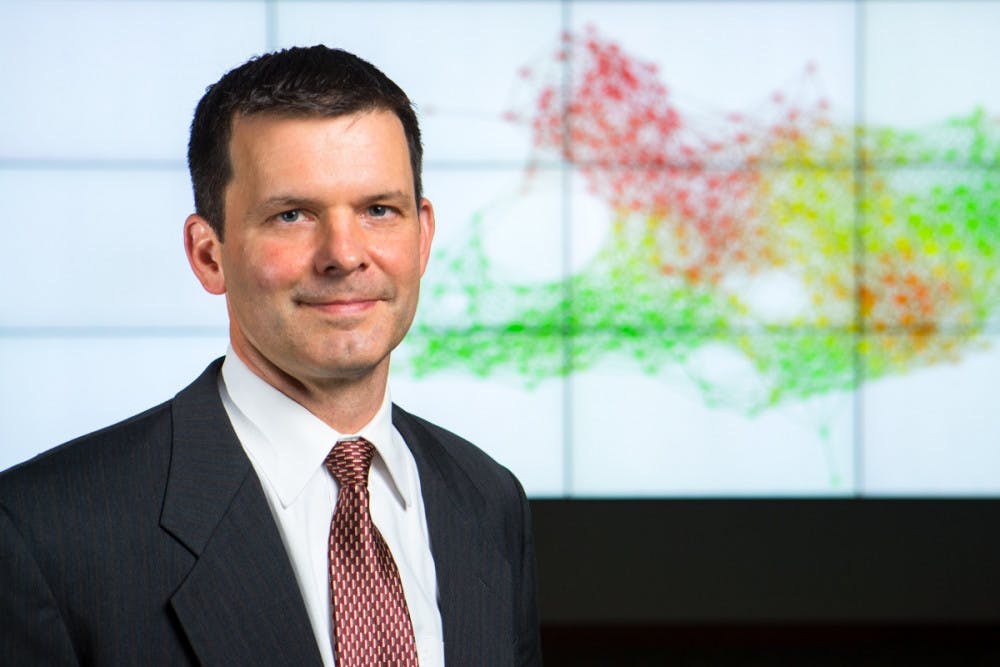The Data Science Initiative, a new interdisciplinary program, will offer a one-year master’s degree, hire 10 new faculty members and expand the number of undergraduate classes offered in data science. The program will bring together the departments of mathematics, applied math, biostatistics and computer science.
The Data Science Initiative was started as a way to address “a surge of interest and demand for data science, both in the workplace … and in science at Brown,” said Jeffrey Brock, director of the Data Science Initiative and chair of the mathematics department. The idea behind the program was to create a hub to bring together researchers, students and post-doctorates to answer three core questions: What are the methods that data science is using? How do we interrogate those methods? How do we develop new methods?
Data science studies how to combine “various streams of data informing you about the same people,” said Constantine Gatsonis, chair of the biostatistics department. There are two broad categories of data sets: The first is data sets that are collected for a particular purpose, such as a medical charts or health insurance claims, while the second, called found data, is composed of information culled from sources such as Google, Gatsonis said.
“Big data drives research in nearly every field,” wrote Provost Richard Locke P’17 in an email to The Herald. “As an institution committed to advancing knowledge, it is essential that we have the capacity — the tools and the fluency — to understand and work with big data to answer the questions that drive our teaching and research.”
The new master’s program will help integrate the four disciplines “in a way that it wasn’t done before,” Gatsonis said. The University “will be stronger in terms of its ability to teach students quantitative thinking,” he added.
There are two distinct advantages to the University’s master’s program compared to those of other institutions, Brock said. The program offers a mathematical core, as well as “more opportunities for interdisciplinary collaboration” due to the University’s smaller scale.
For Gatsonis, the program’s identifying characteristic is its emphasis on methods. “The nature of the Data Science Initiative at Brown is to focus on methods; that is why the core departments are departments of methods,” he said.
The program’s curriculum will be composed of two double-credit courses to be taken in the first semester — one in probability statistics and the other in algorithms and machine learning — that will continue into the second semester as one credit each.Students will then have the ability to select an elective in a data-related field such as neuroscience, economics or cryptography, Brock said. The final course will use case studies to examine the implications of big data analysis.
The one-year master’s will be followed by a capstone project during the summer so that master’s students can “work with a real data set,” Brock said. The initiative is currently in the process of talking to local companies and on-campus laboratories to organize these projects.
Students looking for jobs within certain industries need a “bigger perspective on the social implications of technology and computing power,” Brock said. These social implications refer to questions such as: Is our privacy being abused through data mining? What policies should be in place to regulate the use of data science?
Students who receive their master’s degree at the Data Science Initiative will leave with “a whole set of tools to go get a job as a data scientist,” Gatsonis said. This set of tools will include the basics of computing, working with large and complex data sets and ability to “manage, organize, merge and compare data sets.”
Correction: A previous version of this article referred to Constantine Gastonia as the chair of the biostatistics department. In fact, the chair of the biostatistics department is Constantine Gastonis. The Herald regrets the error.





